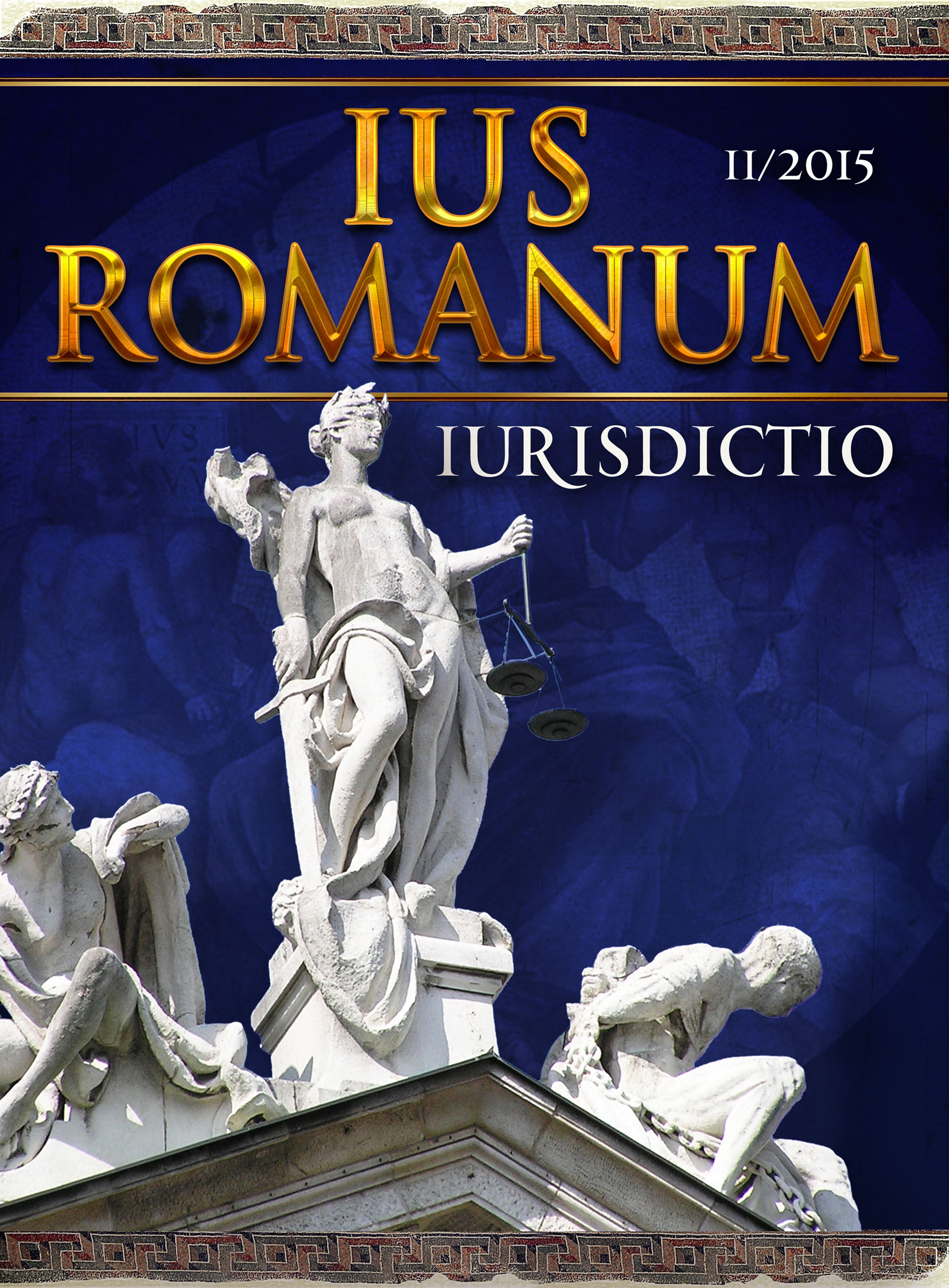ДВУСТЕПЕННАТА ЮРИСДИКЦИЯ И ПОЛИТИЧЕСКА ВЛАСТ ПРЕЗ ПЪРВИЯ ВЕК НА ИМПЕРИЯТА
TWO-STEP JURISDICTION AND POLITICAL POWER DURING FIRST CENTURY OF ROMAN EMPIRE
Author(s): Salvatore RandazzoSubject(s): Law, Constitution, Jurisprudence, History of Law, Civil Law, EU-Legislation
Published by: Софийски университет »Св. Климент Охридски«
Keywords: appeal; Augustus; Senate; Julio-Claudian dynasty; cognitio extra ordinem; Sue-tonius; Cassius Dio; princeps
Summary/Abstract: The article analyzes the origins of the two-step jurisdiction, which is considered to be the predecessor of the two-instance civil procedure. A particular object of in-terest is the relation between the power of the princeps, the extraordinary civil procedure and the means of appeal during the Roman Empire's first century. Strange as it may be, Augustus and all the other Emperors of the Julio-Claudian dynasty never undertook measures to settle the two-step jurisdiction on a legisla-tive level. Thus, one can argue against the widely accepted concept that the ap-peal was by its nature a way to overthrow a formally valid court decision – this concept simply doesn't apply to these early times and could be considered rele-vant only in connection to the era of the Severus dynasty, in which the appeal reached its „maturity" as a legal institute. The author makes the point that in its early stages the appeal was practically a way for the Emperor to gradually reduce the scope of the formulary process and transfer a certain amount of powers in the judicial field to his own persona.
Journal: IUS ROMANUM
- Issue Year: 2015
- Issue No: 2
- Page Range: 95-127
- Page Count: 33
- Language: Bulgarian

